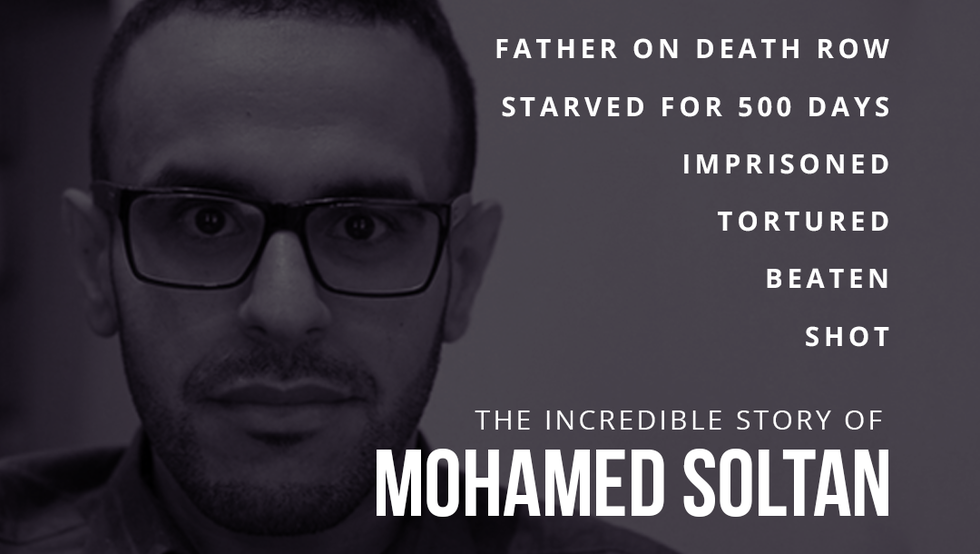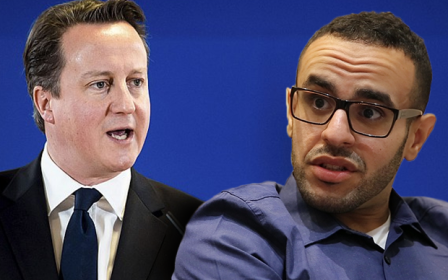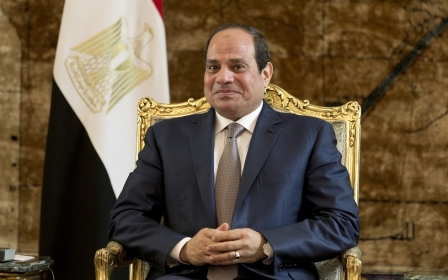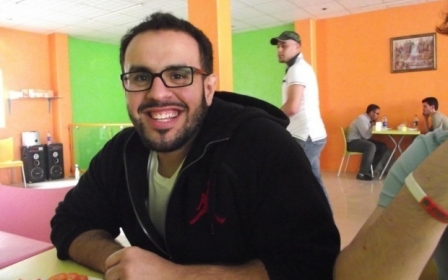Meet Mohamed Soltan: The 500-day hunger striker who survived a massacre

MEE interviewed Soltan on his trip to London, where he charted his emotional journey: from witnessing a massacre to nearly dying of starvation in jail. Watch the full interview below:
Mohamed Soltan was one of Egypt’s most high-profile prisoners political prisoners. In 2013 he was arrested for his part in demonstrations against the coup that overthrew president Mohamed Morsi.
Soltan, who holds a US passport, was arrested shortly after the Rabaa square protests, where he mediated between foreign media and protest leaders. He spent nearly two years in an Egyptian jail, 490 days of which he was on hunger strike. He lost a third of his body weight, nearly dying 10 times.
His hunger strike gained worldwide attention, adding pressure on the US government to ultimately secure his release.
Rabaa massacre: “The world has forgotten that this took place”
Soltan recounts haunting memories of the Rabaa massacre, where he was “shot at for 11 hours before a safe exist was secured”. A shot missed his head by inches as one hit his arm. He accused the Sisi government of deliberately targeting him because he “was live tweeting” and expressed shock at just how bloody the day became. But what haunts him the most is that “the world has forgotten this took place”.
Beatings and torture
Soltan talks through “being beaten by batons and whips and the back of belts,” and of enduring torture that no one should ever have to endure. At one point they even threw a dying man into his room to die, leaving his corpse in there with him. When all this failed to break Soltan’s spirit they started to torture his father and tell him about it. There is a bitter irony, he said: “I went into prison because of who my father was and I came out and my father is being targeted because I am being outspoken.”
Palestinian hunger strikers, Malcolm X and the Civil Rights Movement
Palestinian hunger strikers were a major inspiration to Soltan’s own hunger strike as a means of non-violent resistance. He never thought that he was going to come out of prison alive, but considering that “so many people have paid a hefty price for freedom, my life wasn’t worth any more than theirs”.
Malcolm X’s autobiography was another major inspiration, although Soltan had already read the book: “To read it again, in that context, in that environment, was so uplifting, so inspirational.” The American civil rights movement gave Soltan hope for Egypt's future: “The struggle is long but we’ll get there.”
“My father became my best friend”
His father, Salah Soltan, held a post in the Morsi administration and was arrested around the same time and sentenced to death. He said his father became his best friend in prison, saving his life 10 times. It is his father’s “positive energy” that, throughout all the pain, has managed to keep a smile on his face.
"The world has turned a blind eye to what is happening in Egypt"
Soltan also talked about the privilege that comes with duel Egyptian-American citizenship:
“I had the advantage of having some US embassy oversight. The embassy would visit every month and I would tell them everything I was going through; so you can only begin to imagine what 40,000 political prisoners, that have no over oversight, have no backing [are going through]. Its own government is killing them slowly. That stays with me every single day but it’s also what gives me the motivation to keep going, to keep giving them a voice. To let the world know what is happening, what is going on in these prisons and what the people are enduring, that no human being should ever have to endure.”
Hope, in spite of hell
In spite of everything - the torture, beatings, hunger strike, a father on death row - hope remains Soltan’s shining constant. But he reminds us that hope needs light, awareness and public pressure to survive. He calls for more to be done to raise public awareness over what is going on in Egyptian prisons. Awareness that snowballs into pressuring governments to take action.
The ultimate lesson of his story, he says, is that “non-violent resistance works” but “everybody has to do their part, so us on the outside have got the greater responsibility.”
Middle East Eye propose une couverture et une analyse indépendantes et incomparables du Moyen-Orient, de l’Afrique du Nord et d’autres régions du monde. Pour en savoir plus sur la reprise de ce contenu et les frais qui s’appliquent, veuillez remplir ce formulaire [en anglais]. Pour en savoir plus sur MEE, cliquez ici [en anglais].




